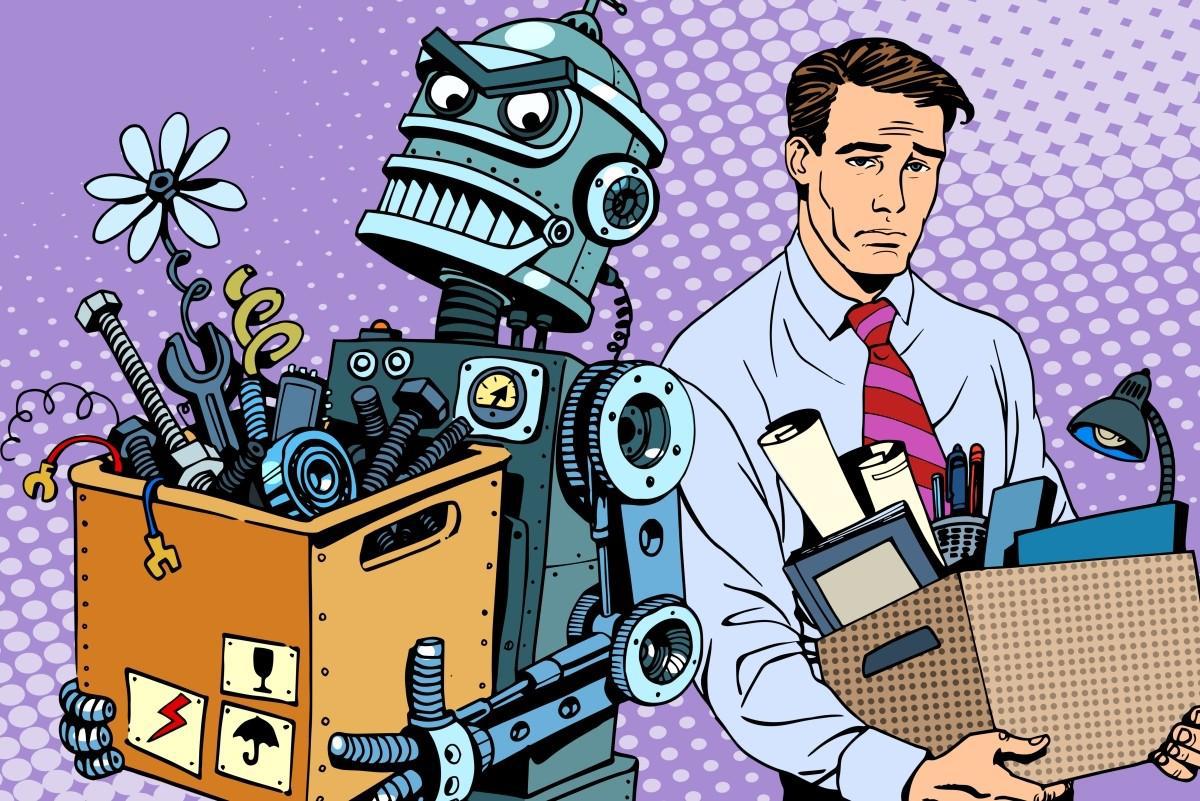

INTRODUCTION
Humanity is today at a moment where we have the possibility of destroying the world just as much as we are capable of ending scarcity on a worldwide level, to put an end to the necessity to work and save our world from the man-made natural disaster of climate change. It should be evident to everyone that technology is a crucial matter for our age. This text is a report on a years worth of discussion on technology in the radical study group Red Mirror.
We have written this text as much to summarise our own ideas as to share what we've found so far with others in the hope that we can together, not just study the future, but actively change it. As activists in the radical left we've often found ourselves on the defence: always reacting to the latest shitty law, to the next Nazi demo, to another racist police event. These struggles are important, but we also have to look towards these massive changes in technology that reshape our world in subtle, but extremely important, ways.
This text is also written as a guide for the interested reader to various newspaper articles, books, YouTube-videos and more which offer a start for individuals to study on their own.
We have summarised our discussions in five different parts. Our discussions contain contradictory opinions and challenges, opening up new questions, suggestions and ideas but constantly return back to basic socialist theory: that the owning class creates a society at odds with the interests of the working class, and as they do this they create not only misery for the majority but they also dig their own graves.
We will release each part separately, here is a short summary of the five parts:
1: The Future of Work. We discuss automation, big data and other changes to capitalism and work in modern society. Particularly we discuss how automation is accelerating, which means that we need to work less in order to do the same jobs as before. In capitalism, this means that bullshit jobs are created, surplus populations are targeted along racialised lines and unemployment grows. We also look closer at how digitalisation has become the new neoliberal slogan, a way to attempt to redeem capitalism, and dismantle these arguments. Finally, we look closer at the gig economy and the struggle against this new digital precarity.
2: Communication and Surveillance. In this part we look at how social media changes society, in particular how capitalism has created ways in which social media distorts society and amplifies division, racism and sexism. We go in-depth in discussing police surveillance strategies, but also look at hopeful events such as the possibility of organising transnationally from below and investigate how the Internet is a possible vision of another society.
3: The Body. Here we focus on feminist arguments and discussions on how modern technologies can change and warp the body. This offers up perspectives of liberation from gender, as well as potentially reinforcing patriarchal norms. We also look closer at how the line between science fiction and science fact is blurred and how we collectively move towards a posthuman state.
4: Stupid plans, failed solutions. We look closer at suggestions for meeting the new technological challenges such as Universal Basic Income and offer a criticism of all of these positions. We also discuss other proposals from the left such as accelerationism and primitivism and tease out issues with these positions.
5: Our solutions. In this final part we offer our own proposal for the future, arguing that the possibilities that we have laid out which exist within technology should be harnessed for a society without classes where we have abolished borders, the existing gender system, money and more.
We look forward to your reactions and comments.
/Red Mirror
PART ONE: The Future of Work
Digitalisation, automation and innovations in logistics are bringing about large-scale changes in work, a shift significant enough for a discussion on "The End of Work" to have cropped up since the 90's. In this part of the text we will investigate these different developments with a view towards both problems to overcome and the possibilities of change. One major trend is the development of big data.

Big data is, in short, the collection of large amounts of data from a variety of sources. For example, when
you go to shop on Amazon this data is collected to create both a
profile of you, as a consumer, and you as part of various collectives.
Where do you live? What do you buy? How fast? How many other women at
age 24 in the greater Stockholm area does the same? Through machine
teaching, by feeding programs massive amounts of data, capitalist
enterprises attempts to refine their profit-making operations. This is of course also used in other situations as well, not least as part of the large-scale political manipulation of Cambridge Analytica:
Our favourite big data story is this:
"An angry man went into a Target outside of Minneapolis, demanding to talk to a manager:
<dl><dt></dt><dd> Target knows before it shows. </dd></dl> “My daughter got this in the mail!” he said. “She’s still in high school, and you’re sending her coupons for baby clothes and cribs? Are you trying to encourage her to get pregnant?”
The manager didn’t have any idea what the man was talking about. He looked at the mailer. Sure enough, it was addressed to the man’s daughter and contained advertisements for maternity clothing, nursery furniture and pictures of smiling infants. The manager apologized and then called a few days later to apologize again.
(Nice customer service, Target.)
On the phone, though, the father was somewhat abashed. “I had a talk with my daughter,” he said. “It turns out there’s been some activities in my house I haven’t been completely aware of. She’s due in August. I owe you an apology.”
- "How Target Figured Out A Teen Girl Was Pregnant Before Her Father Did."- "How Target Figured Out A Teen Girl Was Pregnant Before Her Father Did."
This story reveals certain things. Firstly, that technology is always gendered and part of the patriarchal structure of our society, and the second one is that algorithms - through big data - have immense predictive power. The reason why these "knew" that the teenager was pregnant was due to data showing how women in the age bracket 18-25 who suddenly radically changed their shopping habits were often pregnant. This is but one glimpse of the power of big data.
Liberal Technology Optimism
Big data has been heralded by liberals as a possibility for a beautifully efficient capitalism. There are several issues with this. There is no such thing as data outside of the power relations that human society produces, such as gender, class and ethnicity. Machine learning, through the engineers and the societies that it learns from, produces racist and sexist results. Another is the waste that is produced by algorithms and computing power is used to try to push useless products to people rather than being utilised for engineering ways to develop new medication or assigning food or housing to those who have none. This is business as usual for capitalism and the technology optimism of liberals shrouds the true relations that technology creates.
Some liberals, prominently Susskind & Susskind in "The Future of the Professions" claim that big data allows for a total revolution in work and an end to the professions. Today, there are bots who can write articles as well as a journalist, and other programs that can go through millions of case files in law and write the basis for a case verdict. Some programs are far more efficient than doctors at analysing symptoms. Susskind & Susskind see this as a potentially liberatory moment as the power differences between lay individuals and professionals will be rebalanced, and overall this is certainly a laudable goal. However, their work is at the same time highly dubious. They claim, for example, that teaching will be heavily affected since you can watch "the best pedagogues in the world on YouTube". Unfortunately, research in pedagogy heavily point to the relation of the pedagogue to the student as the basis for development of knowledge. It's impossible to get a well-rounded education through watching YouTube. This then speaks to the greater naivety among liberals in the big data discussion.
The People's Republic of Wal-Mart
Big Data is today used heavily by corporations such as Wal-Mart, the largest private employer in the world (third overall, after the American and Chinese armies) with an economy larger than the whole Soviet Union's before it's collapse. Algorithms and big data work hand in hand, sometimes not even passing humans, to stock massive supplies of goods. One such strange coincidence was that big data analysis revealed that in places where hurricanes were about to take place the demand for strawberry pop tarts went up, thus promoting greater stocking of these pop tarts in Wal-Marts in the area.
Wal-Mart itself uses this data aggressively: they were the innovators of the RFID-tag system and develop logistics as a weapon to destroy competitors and essentially enslave their suppliers weapon to destroy competitors and essentially enslave their suppliers. Along with intense union busting, this has made the Walton family one of the richest in the world, it's hands reaching from factories in Asia into the heartlands of America. Of course, for socialists the interesting part is how this system has created the basis for a future socialism, a planned economy from below. We need to put the power of the algorithms and of this entire massive structure in the hands of producers and consumers, turning the pyramid upside down and expropriate this data.
A similar dream was had by Stafford Beer and the cyberneticists in Allende's Chile. While these essentially created a primitive form of big data, which is now superseded in sophistication in every little corner store in Sweden, and while they only attempted to improve capitalism they did create a basic blueprint for how to reconsider data collection in relation to the socialist project. Companies like Wal-Mart are today vastly beyond the scope of Beer's dream (which died with Pinochet) and can collect massive amounts of data in real time, sorted by algorithms and machine learning to produce and transport the right amount of goods to a place before people even know it is needed.

Automation
Automation is the process of replacing human labour with machines, a process which is integral to capitalism. Marx himself brought it up, the Luddites were by his time already famous for their resistance to machines that destroyed their livelihood. One highly discussed article by Carl Benedikt Frey and Michael A Asborne claimed that 50% of all jobs were in danger of being automated, and while the OEC revisits these numbers one thing is clear: the way we work is changing.
First of all, automation simply means that less work has to be done by fewer human hands. Some jobs have already been entirely lost to history: as the YouTube video Humans Need Not Apply points out, there are simply no more jobs for horses and many human jobs have already gone the way of the horse. Particularly the sectors of manufacturing and logistics (that is, driving things from one place to the other) are in danger of being automated while sectors such as teaching or nursing remain difficult to automate due to their creative and social nature. However, as the robotification of eldercare in Japan point out this does not mean that care work is immune to automationthe robotification of eldercare in Japan point out this does not mean that care work is immune to automation. Particularly, capitalism caresless if people actually require a human relationship and thus worse care than if it can save money and make a profit.
In capitalism automation is a disaster rather than a moment of liberation from the drudgery of work. A focal point of our discussions has been that automation is a necessary step to liberate humankind from work but today it means unemployment and the creation of a surplus population. This surplus population is not merely chosen by accident, but along gendered (it is classical male work which is disappearing the fastest, even as now feminised service jobs are starting to be affectedfeminised service jobs are starting to be affected), classed (it is workers at the bottom of the societal pyramid who are mainly affected) and racialised boundaries (a major reason for the restriction of asylum today is the lack of work and thus a surplus population of migrants are considered a liability)a major reason for the restriction of asylum today is the lack of work and thus a surplus population of migrants are considered a liability).
For professionals automation means that simply there is too much work in the workday. Swedish sociologist Roland Paulsen and anarchist academic Graeber both point to this development and all of us who fuck around all day on Facebook know the truth of this. Furthermore, this points to the pointlessness of "job creation" and neo-Keynesianism. Many of the jobs which are created are bullshit jobs.
To conclude this section, automation is a force driven by capitalist expansion which cannot be stopped. Governments can try to create jobs or kill immigrants, but this will not change this fact. Of course, the more machines take over the more prone to crisis the entire system becomes.
The Gig Economy and the Precarisation of Work
The Gig Economy is, in short, extremely temporary, "flexible" and precarious work typically organised through apps or other digital platforms such as Uber or Foodora.

The reward system encourages and foster an over-ambitious wage work were only measurable performance are rewarded, in the extent its measured, and only during the execution. Tasks are specialised and individualised, and the terms are deteriorated. In the gig economy there are number of systems designed to reward "good" work. Food delivery apps track the speed and number of your deliveries, paying you accordingly. This leads to a situation where only measurable performance is rewarded, and you are only rewarded while you are performing tasks that can be measured. Any time spent on not delivering food is time off, and time that you are not compensated for.
In some apps, like Yepstr and Selfie jobs, your actual performance is not what determines your rating, but rather how the "buyer" rates your work. This can lead to situations where factors entirely outside of your control has a great effect on your performance rating and ability to continue working. If the lawn mower breaks down and you get a low grade as a result this grade can haunt you for a long time, and with stiff competition and no colleagues to back you up your ability to get future work will be damaged.
In these apps the only way to advertise is often with a short description and a salary, which naturally leads to a race to the bottom. In this radically individualised workplace everyone is forced to be an entrepreneur. Working conditions degrade, the community of the workplace is lost and your ability to fight back diminishes.
In these conditions traditional unionism familiar to most in Sweden, with a top heavy bureaucratic union led by social democrats, is more useless than usual. Labour laws have little to no meaning and regular workplace organising with negotiations and threats of strike are hardly applicable, partly due to these unions not organising this type of labour, but also because there is no traditional employment, and any deals are temporary.
The insecurity with "flexibility" and temporary jobs complicate unity and work place struggle, but at the same time creates space for a new kind of resistance. The tactics of anarco-syndicalism work well against gig work, and resistance have paid off several times. SUF Stockholm´s campaign against Selfiejobs and Yepstr are examples of such. Yepstr's rating dropped significantly backed off after massive downvotes against the company Yepstr's rating dropped significantly backed off after massive downvotes against the company and Selfiejobs shut down after a mass of job searching profiles with unreasonable terms, also by organised youths and comrades
The campaign, "nopestr" was subsequently launched and here they argue for the campaign. Campaigns against gig work continues to pop up around the world. A struggle to take note of is the Uber-workers who logged out at the same time and thus managed to raise the amount of money they'd receive https://www.telegraph.co.uk/technology/picture-galleries/11902080/Anti-Uber-protests-around-the-world-in-pictures.html?frame=3458636.
Gigbrother - a Case Study in Flexibility
Other than the horrible pay and lousy conditions, working for a gig company intrudes on your private life to a much greater extent than other work. It takes over all of your day and ruins your ability to make plans. This is called flexibility and is touted as something good, something that sets the gig economy apart from normal, boring work. Gigbrother too uses this argument, despite intruding on your private life even more than normal gig economy "work" does.
Gigbrother is an app slated to launch in the autumn of 2019 for the swedish gig economy market. It is pitched as a way to link together your "gigs" and your private life, all in an effort to maximise your gigging potential. According to their website they already cooperate with a number of different gig economy apps such as Foodora Taskrunner, Tiptapp and Voi.
Gigbrother works by collecting all your gig accounts in one place, and connecting it with other apps such as Google Calendar or Facebook Messenger. When you add an event to your calendar gigbrother will warn you if you scheduled your date at a time slot where you're likely to be offered "gigs", and suggest you move it. If your friend invites you to a party over Messenger gigbrother will help you to "quickly decline, and suggest a time when you're unlikely to get a gig" (our translation). [https://web.archive.org/web/20191008175801/https://gigbrother.se/]
This makes it very clear what is meant by "flexible working hours". You need to always be ready to accept work, without any regard to any kind of personal desires in life. You must always be ready to cancel any task at hand, and if it's a time slot where you're likely to be offered a task you probably shouldn't be doing anything to begin with. Just sit around watching your phone hoping for it to ring, of course while not being paid. Always ready to jump at any opportunity, no matter the pay, no matter the conditions.
Red Mirror